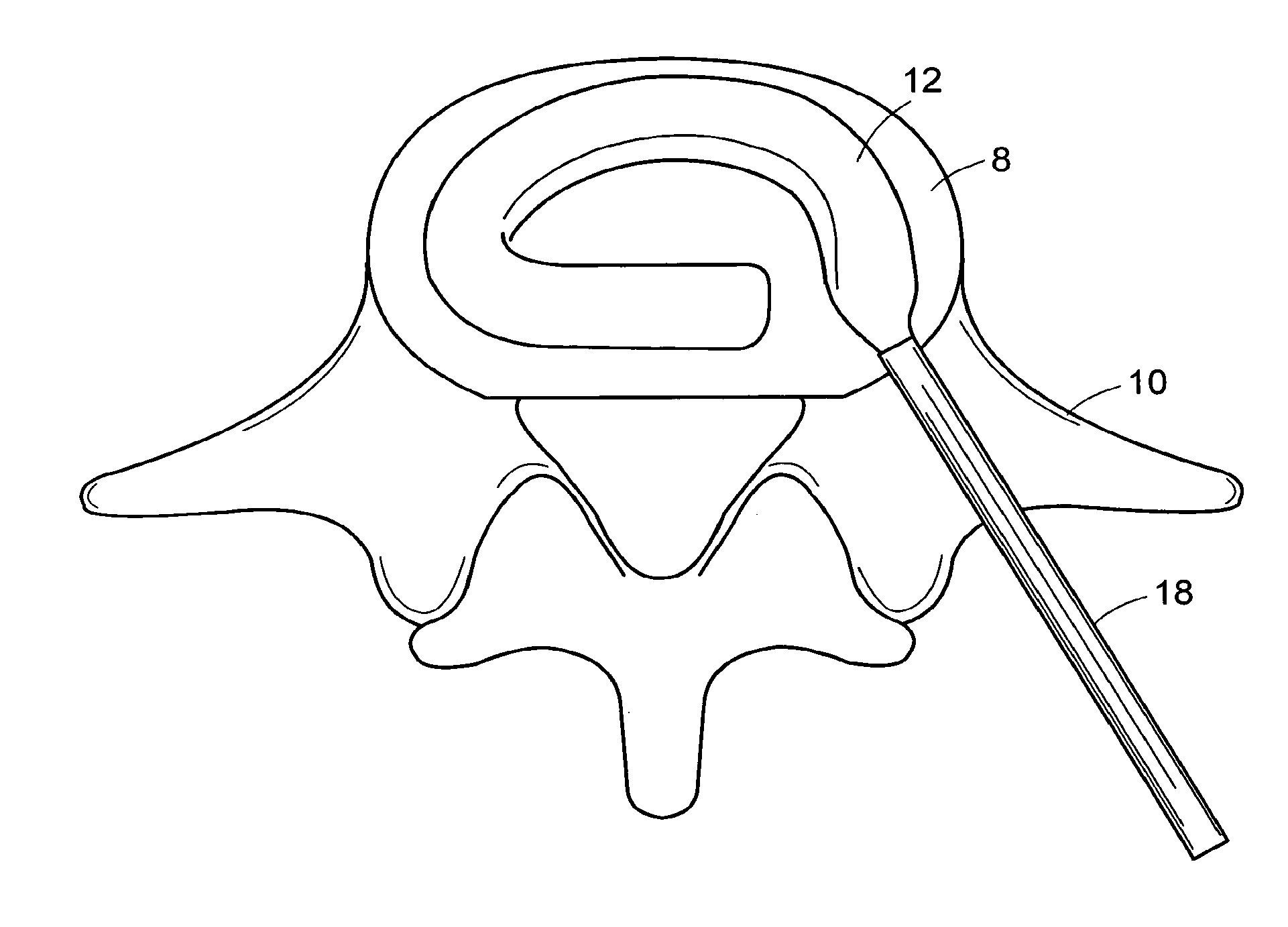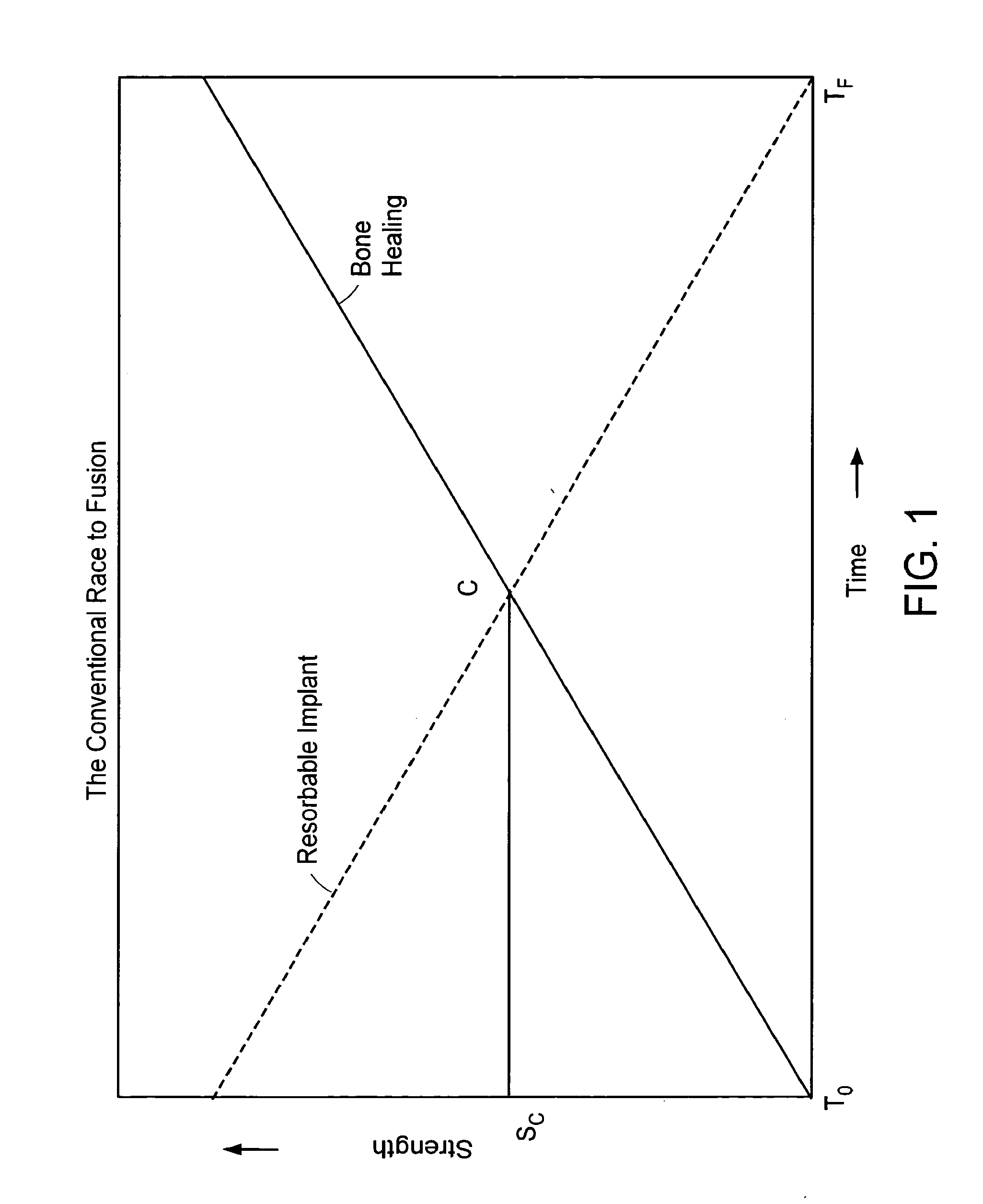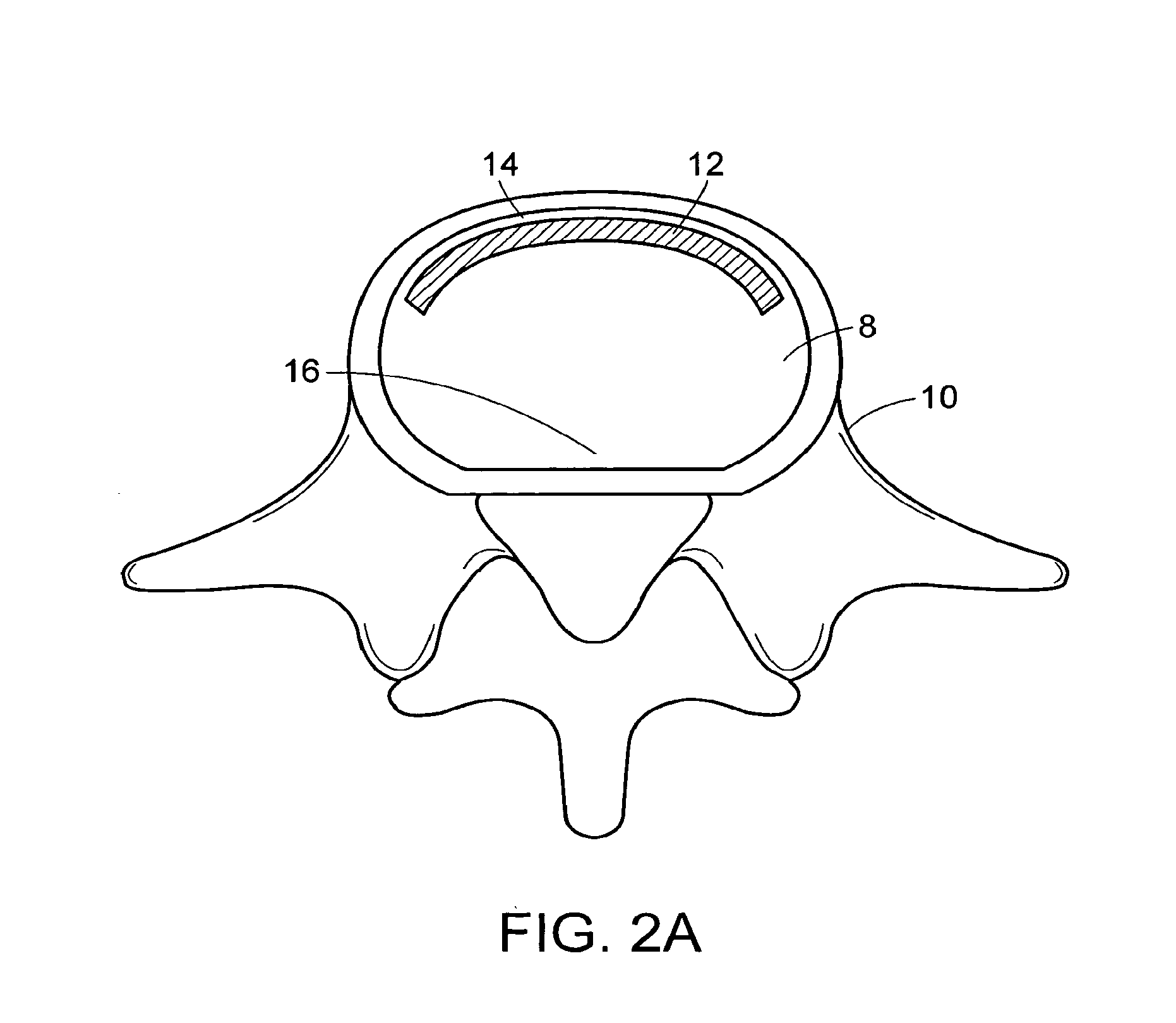In-situ formed intervertebral fusion device and method
a technology of intervertebral fusion and in-situ formation, which is applied in the direction of joint implants, luminescence/biological staining preparations, prosthesis, etc., can solve the problems that a fusion device or bone graft substitute designed for promoting bony fusion at another location in the body (such as long bone fusion) may not be suitable for use as an intervertebral body fusion device, and achieves minimal invasiveness, increase dis
- Summary
- Abstract
- Description
- Claims
- Application Information
AI Technical Summary
Benefits of technology
Problems solved by technology
Method used
Image
Examples
example 1
Employing a Method of the Present Invention
[0537]In performing a preferred method of the present invention, the patient is brought to the pre-surgical area and prepped. Anesthesia is then induced and the area of the spine is further prepped. A small incision through the muscles is opened under dissecting microscopic visualization. The incision is made as small as possible and is longitudinal in the plane of the spine. The paravertebral muscles are separated by blunt dissection and held apart with forceps and dividers. The intervertebral disc area is visualized, with initial exposure down to the lamina. The area below the lamina, at the point of the intervertebral foramina, can also be exposed.
[0538]The disc is examined for extruded material and any extruded material is removed. Magnetic resonance imaging (“MRI”) data can be used to determine the integrity of the annulus fibrosis at this point. An arthroscope is inserted into the disc and used to examine the inside of the annulus. Op...
example 2a
Surgical Procedure that Employs Methods and Devices of the Present Invention
[0545]A surgical procedure to fuse the vertebrae using methods and devices of the present invention can comprise the following steps:[0546]i. Puncture or cut a flap in the annulus fibrosus and insert a small diameter tube into the slit,[0547]ii. Perform a conventional discectomy to remove the nucleus pulposus,[0548]iii. Insert a small diameter tube, e.g. a cannula, into the disc space through the slit,[0549]iv. Insert a strut, e.g. a balloon or a ramp having a partially annular shape, into the disc space through the tube,[0550]v. Flow glucose-containing polycaprolactone into the disc space including the volume defined by the outer surface of the partially annular balloon or a ramp, through the tube at about 70° C. Upon cooling to 37° C., the polycaprolactone should become solid, thereby supplementing the mechanical attributes of the strut,[0551]vi. Leach out the glucose, thereby forming a porous matrix.[0552...
example 3
Harvesting Progenitor Cells for Use in Osteobiologic Material
[0555]Prior to performing spinal surgery, approximately 5 cc of bone marrow is aspirated from the iliac crest of the patient into a heparinized syringe tube. The heparinized marrow is then passed through a selective cell attachment filter. The filter is designed for selective attachment of osteoprogenitor cells such as mesenchymal stem cells and osteoblasts. Following selective cell attachment, the cells are tripsinized off of the filter and collected in a flask. The flask is then centrifuged to precipitate a cell pellet on the bottom of the flask and the supernatant is poured off. The cells are then mixed with the injectable precursor form of the hydrogel. The precursor hydrogel is then poured into molds that are between 50-250 um in any dimension. The precursor hydrogel is then cured, for example with a photoinitiator, to yield cell loaded hydrogel particles. These cell-hydrogel particles are then mixed with the viscous ...
PUM
 Login to View More
Login to View More Abstract
Description
Claims
Application Information
 Login to View More
Login to View More - R&D
- Intellectual Property
- Life Sciences
- Materials
- Tech Scout
- Unparalleled Data Quality
- Higher Quality Content
- 60% Fewer Hallucinations
Browse by: Latest US Patents, China's latest patents, Technical Efficacy Thesaurus, Application Domain, Technology Topic, Popular Technical Reports.
© 2025 PatSnap. All rights reserved.Legal|Privacy policy|Modern Slavery Act Transparency Statement|Sitemap|About US| Contact US: help@patsnap.com



